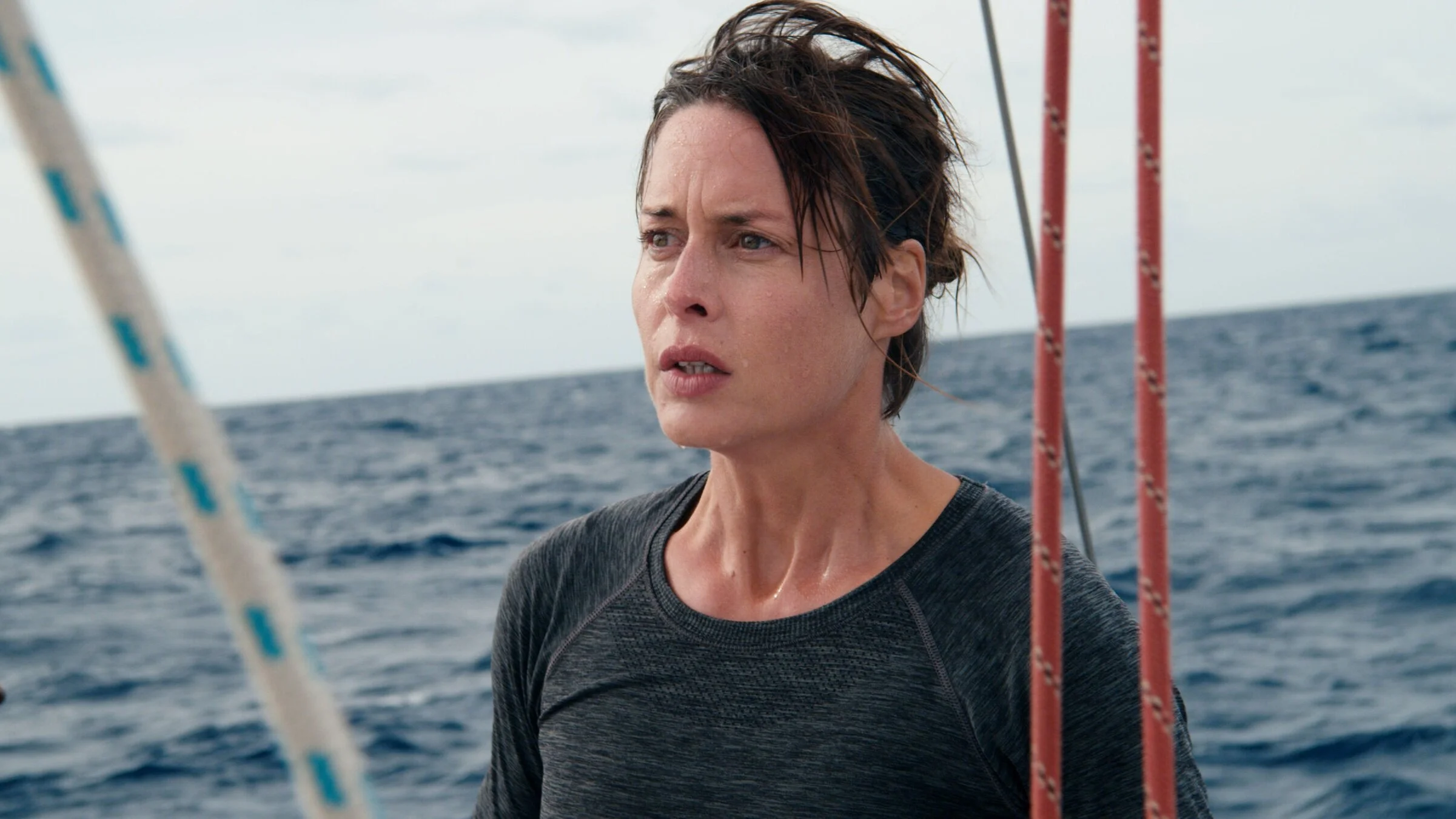Styx
Behind the oddly chosen title lies a film commenting on one of the great issues of the day.
A film from the German director Wolfgang Fischer, Styx is an unusual enterprise and on one level what is on the screen is truly formidable. Despite a title which refers to Greek mythology and the river which is a crossing leading to the world of the dead, Styx is a contemporary piece. It takes a very individual look at the plight of so many refugees today who risk death at sea by boarding vessels to reach another country only to find that the craft are inadequate. Such a theme might well have been tackled through a standard dramatic tale with many characters portrayed in detail. Here, however, Fischer, providing the screenplay with Ika Künzel, opts for an approach rarely adopted for this kind of material: minimalism.
Styx puts one figure screen central, Rike played by Susanne Wolff. We follow her as she sets off singlehanded on her sailing yacht and, with hardly any dialogue (it takes radio contact with a coastguard to break the film's silence here), the viewer accompanies her on her voyage which in the film's first third leads to a sense of drama only when a storm renders the voyage perilous. This voyage is one that finds her sailing from Gibraltar headed for Ascension Island and there are brief introductory scenes featuring rather bizarrely the apes of Gibraltar and, more relevantly as it turns out, establishing the fact that Rike is a doctor and has the skills that go with that. Somewhat inconsistently, these opening sequences and those at the close are accompanied by prominent dramatic music whereas once we are at sea the film sensibly eschews all music thus adding to the sense of almost documentary veracity. Indeed, the level on which Styx is remarkable is that which makes us feel that we really are on board the yacht in all weathers (any potential viewers troubled by seasickness might be ill at ease so vivid is it). Wolff gives a performance that is not only highly persuasive but in the circumstances valiant too.
Given that Styx is so minimalistic, it seems wrong for the critic to reveal any real details about what happens in the last two-thirds beyond indicating that it involves Rike in coming across a fishing trawler in trouble and bearing refugees. One of these, a boy of fourteen played by Gedion Oduor Wekesa, becomes the one other significant character in the film. It is, of course, these scenes that are the real point of the film evidencing both Fischer's sympathy for refugees and his indignation also. He expresses this by stressing the moral dilemma faced by Rike but, while the earlier sense of realism will continue to sweep some audiences along with it, I felt that my emotions were being worked on in a calculated way. The intention is laudable but, because the drama feels set up, its impact for me pales drastically compared to that achieved by the authentic realism of Ai Wei-Wei's magnificent documentary Human Flow (2017), With that film in mind, Styx is hardly a necessary film, but many viewers may respond to it far more emotionally than I was able to do.
MANSEL STIMPSON
Cast: Susanne Wolff, Gedion Oduor Wekesa, Kelvin Mutuku Ndinda, Inga Birkenfeld, Alexander Beyer.
Dir Wolfgang Fischer, Pro Marcos Kantis, Martin Lehwald and Michal Pokorny, Screenplay Ika Künzel and Wolfgang Fischer, Ph Benendict Neuenfels, Pro Des Wolfgang Fischer, Ika Künzel, Benedict Neuenfels and Volker Rehm, Ed Monika Willi, Music Dirk von Lowtzow, Costumes Nicole Fischnaller. Thank
Schiwago Film/Amour Fou Vienna/WDR/ARTE/Austrian Film Institute-606 Distribution.
95 mins. Germany/Austria/Malta/The Netherlands. 2018. Rel: 26 April 2019. Cert. 12A.


